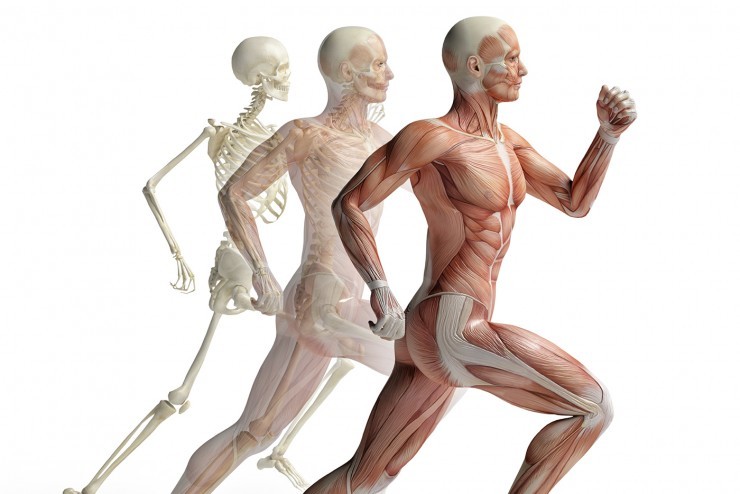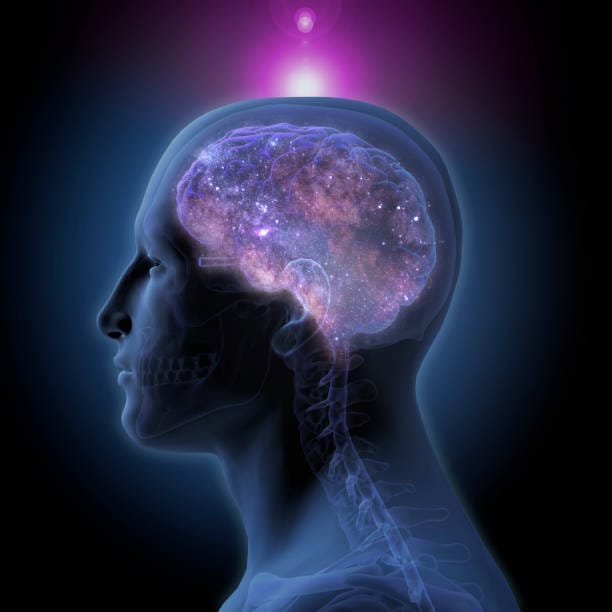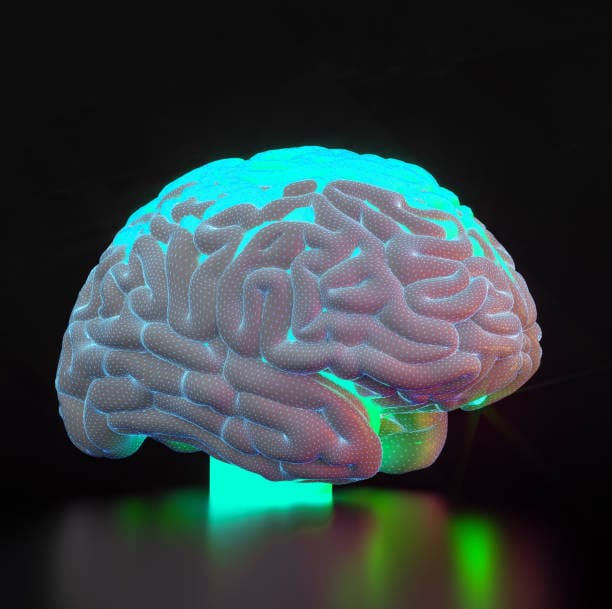Health is not built overnight, nor is it the result of one extraordinary action. Instead, it emerges from the small, almost invisible choices we make every day. The way we wake up, the food we put on our plates, the way we breathe when stressed, the quality of our sleep—all of these tiny threads weave together to form the fabric of our well-being. The truth is that our bodies and minds are resilient and astonishingly adaptive, but they require care, attention, and rhythm.
In a world dominated by quick fixes and endless energy drinks, the real path to lasting vitality lies in nurturing natural habits that align with the body’s innate wisdom. Science continues to affirm what ancient traditions always knew: when we live in harmony with our biology, energy becomes effortless, and health becomes sustainable.
This is not about chasing perfection. Rather, it is about cultivating rituals that feel nourishing and repeatable—rituals that turn health from a struggle into a way of life.
The Morning Rhythm: Awakening with Intention
The first moments of the day set the tone for everything that follows. Waking up in a chaotic rush often carries stress forward like a wave, while waking with intention allows the body and mind to rise naturally. Researchers have shown that our circadian rhythm—our internal body clock—thrives on consistency. Going to bed and waking up at the same times each day balances hormone levels, stabilizes metabolism, and optimizes energy.
Exposing yourself to natural light soon after waking is one of the simplest yet most powerful ways to synchronize this rhythm. Morning sunlight triggers a surge of cortisol at healthy levels, signaling to the brain that it is time to be alert. This natural boost in energy is very different from the jolt of caffeine, because it aligns with the body’s biological clock rather than forcing it.
Starting the morning with mindful practices—whether deep breathing, stretching, or journaling—also primes the nervous system for resilience. Such rituals engage the parasympathetic system, grounding the body before the day’s demands arrive. Instead of beginning in survival mode, you begin with stability.
Nourishment as Energy’s Foundation
What we eat is not merely fuel; it is information. Each bite of food communicates with our cells, influencing inflammation, metabolism, and mood. A diet built on whole foods—fruits, vegetables, whole grains, legumes, nuts, and lean proteins—creates the foundation for lasting energy. Unlike processed foods that spike blood sugar and crash it soon after, whole foods provide steady nourishment.
Scientific studies consistently show that colorful plant foods supply antioxidants that combat oxidative stress, protecting cells from damage. Fiber-rich meals regulate blood sugar and promote a healthy gut microbiome, which in turn influences everything from immunity to mental health. Hydration, often overlooked, is equally essential. Even mild dehydration can cause fatigue, impaired concentration, and irritability. Drinking water throughout the day is one of the simplest habits with profound impact.
Balancing meals is also vital. Pairing proteins with complex carbohydrates and healthy fats sustains energy far longer than quick snacks alone. For example, an apple with almond butter provides natural sugars, fiber, and fat, keeping energy steady instead of fleeting. Eating slowly and mindfully improves digestion and allows the body to register satiety cues, preventing both overeating and energy crashes.
The Art of Movement in Daily Life
Exercise is often misunderstood as something that must be grueling or confined to the gym. In reality, the human body is designed for natural, varied movement throughout the day. Sedentary lifestyles disrupt circulation, slow metabolism, and diminish vitality. But even gentle, consistent movement can reverse these effects.
Walking is one of the most accessible and underestimated habits for health. Regular brisk walking improves cardiovascular health, lowers stress, boosts creativity, and enhances mood by releasing endorphins. Stretching or yoga supports flexibility, joint health, and relaxation of tight muscles caused by long hours of sitting. Strength training, whether through bodyweight exercises or weights, preserves muscle mass and bone density, both of which are crucial for aging gracefully.
The key is consistency rather than intensity. Short, frequent bouts of movement—standing, stretching, climbing stairs, taking walks—often do more for long-term health than sporadic intense workouts. Science shows that exercise also enhances sleep quality, sharpens cognition, and acts as a buffer against anxiety and depression.
Breath and Stress: Unlocking Hidden Energy
Energy is not only physical but also deeply influenced by mental and emotional states. Chronic stress drains vitality, not just by affecting mood but by disrupting hormones, weakening immunity, and impairing digestion. One of the simplest yet most overlooked habits for restoring energy is mindful breathing.
Breath connects body and mind. Slow, deep breathing activates the vagus nerve, shifting the body from the stress-driven sympathetic state to the calming parasympathetic state. Just a few minutes of diaphragmatic breathing lowers heart rate, reduces cortisol, and improves clarity of thought. Practices like meditation, mindfulness, and gratitude journaling have been shown to rewire the brain’s stress response, cultivating resilience over time.
Building rituals of pause during the day—stepping away from screens, spending moments in silence, or walking in nature—creates space for the nervous system to reset. Unlike artificial stimulants, which exhaust reserves, these practices cultivate energy from within.
The Role of Rest and Recovery
Health and energy cannot exist without recovery. Sleep is not a luxury; it is a biological necessity, as vital as food or water. During deep sleep, the body repairs tissues, consolidates memories, and clears waste from the brain. Poor sleep disrupts everything from mood regulation to immune function.
Creating a sleep-friendly environment is one of the most transformative habits for health. This means keeping the bedroom cool, dark, and quiet, minimizing screen exposure before bed, and maintaining a consistent bedtime routine. Scientific studies show that exposure to blue light from phones and computers in the evening suppresses melatonin production, delaying sleep and reducing quality.
Rest is not limited to sleep. Micro-rests throughout the day—short breaks, naps, and moments of stillness—help replenish mental focus and physical stamina. Just as muscles grow stronger after rest from training, so does the brain recover after intervals of pause.
Relationships and Emotional Energy
Human connection is another pillar of health often overlooked in discussions of daily habits. Positive relationships boost energy in ways that no supplement can replicate. Studies consistently show that social connection lowers stress, enhances immunity, and even increases lifespan.
Spending time with loved ones, engaging in meaningful conversations, and cultivating empathy all feed emotional energy. Laughter releases endorphins, touch releases oxytocin, and kindness strengthens both giver and receiver. Isolation, on the other hand, has been linked to fatigue, depression, and chronic illness. Making space each day for connection—whether a shared meal, a phone call, or simply eye contact with a stranger—nourishes the human spirit.
The Healing Force of Nature
Modern life often distances us from the natural world, yet countless studies affirm that time outdoors restores energy and well-being. Exposure to natural light regulates circadian rhythms, while green spaces reduce stress and improve mood. The Japanese practice of “forest bathing” has been shown to lower cortisol, reduce blood pressure, and boost immunity.
Walking barefoot on natural ground, known as “earthing,” may reduce inflammation and improve sleep by reconnecting the body to the Earth’s electrical field. Even short doses of nature—a brief walk in the park, tending to plants, or opening windows for fresh air—can shift physiology toward balance.
Nature reminds us that health is not a battle but a state of harmony. By aligning our rhythms with the environment, we reclaim energy that artificial surroundings often drain.
The Role of Purpose and Mindset
Energy is not purely physical; it is also psychological. Having a sense of purpose can invigorate the body as much as rest or nutrition. Studies on “ikigai,” a Japanese term meaning “reason for being,” show that people with a strong sense of meaning in life enjoy longer, healthier lives.
Mindset also shapes energy. Optimism, gratitude, and self-compassion reduce stress and strengthen resilience. Negative self-talk, on the other hand, saps energy and undermines well-being. Developing the habit of reframing challenges as opportunities and practicing gratitude daily rewires the brain toward positivity.
Purpose transforms routine into meaning. Even mundane actions, when connected to a larger sense of contribution or joy, fuel rather than deplete energy.
A Symphony of Small Changes
The beauty of daily habits is that they do not need to be grand. It is the small, consistent actions that accumulate into profound transformation. Drinking water instead of soda, choosing stairs over elevators, breathing deeply during moments of stress, turning off screens an hour before bed—all of these seemingly minor decisions ripple outward into lasting health.
The science is clear: the body and mind thrive when given consistent nourishment, movement, rest, and connection. Energy is not something to be borrowed through stimulants; it is cultivated naturally through alignment with biology and environment.
By embracing habits that honor the body’s rhythms, health ceases to be an uphill battle. It becomes a natural state, an unfolding harmony between body, mind, and spirit.
The Journey, Not the Destination
Ultimately, building daily habits for health and energy is not about achieving perfection. It is about creating a rhythm of living that feels sustainable, joyful, and aligned with your values. Some days will be full of energy, others less so—and that is part of being human.
The goal is not to control life but to live it with awareness and intention. Each habit is a choice, and each choice is a step toward vitality. When you begin to see health not as a burden but as a daily act of self-respect, energy flows more freely.
Life’s greatest wealth is not found in possessions but in the vitality with which we live. By honoring the simple, natural habits that support body and spirit, we unlock a deeper potential—to not just survive each day, but to thrive within it.






